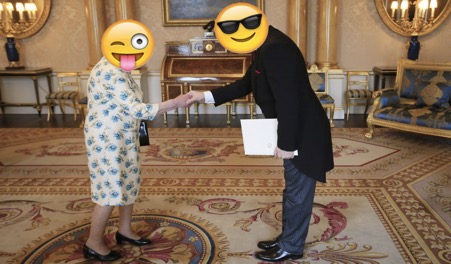Article

Emojis could be the promised land of diplomatic history: they have the potential to speak across borders to a new, global citizenry.
Three sets of side-eyes, a tears-of-joy face, a sunglasses face, a Japanese ogre, a goblin, an alien face, a thumbs up, the piece sign, and an arm muscle clench. These were the emojis that Walid Joumblatt, the 67 year-old Lebanese politician and ex-warlord, tweeted to mark the instatement of The Arab League’s new secretary-general.
If Middle Eastern politics doesn't already have you hooked, Joumblatt’s Twitter account will draw you in with its surreal mix of paintings and politics. He's also an emoji mogul: aliens for Putin; hearts for Oscar, his dog.
The unorthodox style has won him 240,000 followers and drawn the attention of Britain’s diplomat-célèbre, Tom Fletcher, who served as Britain's ambassador in Lebanon from 2011 to 2015. Fletcher has not yet used emojis professionally, he tells me down the line from a Humanitarian summit in Turkey, but he is intrigued by Jumblatt’s increasing and provocative use of the symbols.
Fletcher is well versed in the syntax of statesmanship. As a former Downing Street foreign policy advisor to three consecutive Prime-Ministers, and author of a new review into the UK’s diplomatic operations, he has fought to throw off the old stereotypes that weigh down his vocation – from “smug” aristocrat to “perfidious Machiavel”.
To do this successfully, he argues in his book Naked Diplomacy, the next generation must become “digital interventionists”; masters of social media who “influence the countries we work in on a massive scale, not just through elites”. And yet the role of emojis – the native slang of the digital world - leaves his profession in a pickle.

